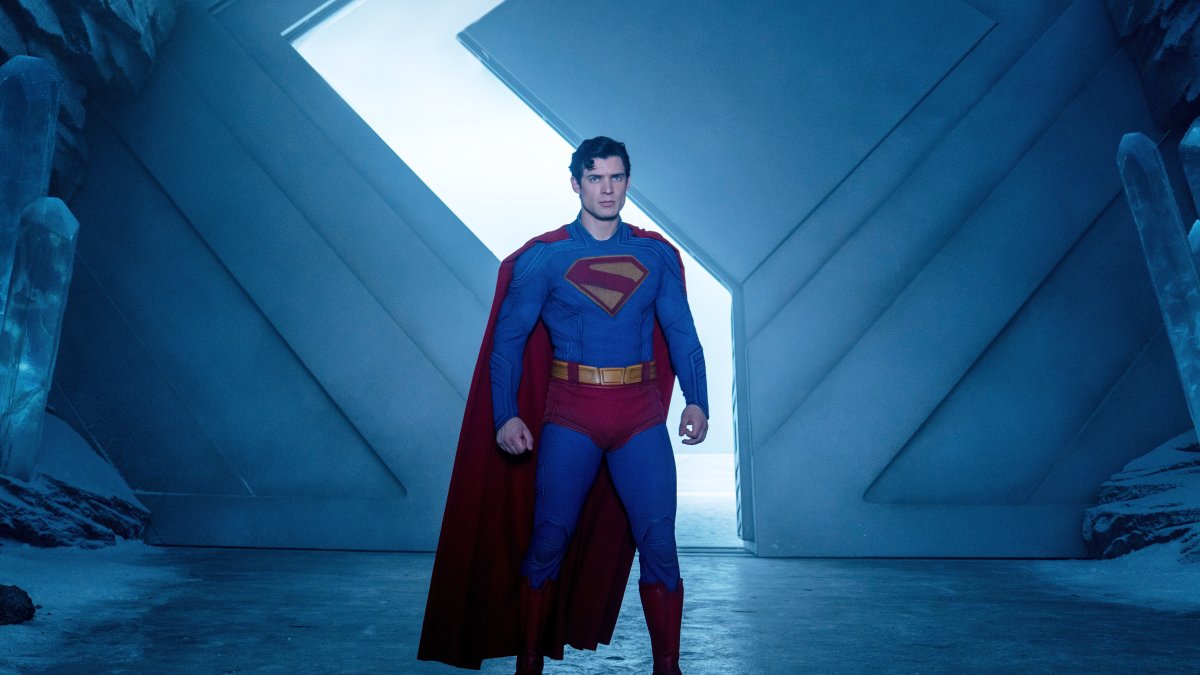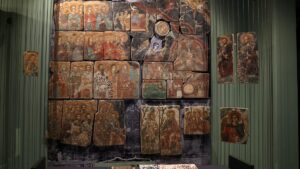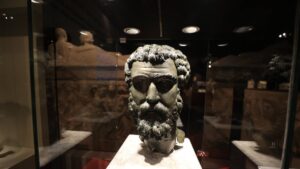For decades, Superman has been a symbol of strength, justice and hope – etched into the memories of generations and standing tall as one of Hollywood’s most iconic characters. Powered by the sun, this extraterrestrial hero has returned to the big screen under the direction of James Gunn in a new film that reinterprets the Man of Steel in unexpected ways.
This latest adaptation presents a more emotionally resonant Superman, layered with political allegory and a deeper exploration of his alien origins. By emphasizing his identity as a “migrant,” the film reframes Superman not just as a hero, but as a poignant metaphor for displacement and identity.
Timely anti-war statement
Titled simply “Superman (2025),” the film makes bold artistic choices, portraying the superhero as a pacifist. This direction is especially resonant in today’s geopolitical climate – particularly in light of the tragic loss of thousands of lives in Gaza. The film’s underlying themes allow for multiple interpretations, many of which have sparked critical debate.
Yet, according to several film critics, these weighty topics are not always handled with the depth or balance they deserve. Nevertheless, the movie has struck a chord with viewers – invoking nostalgia for longtime fans and introducing a new generation to the legacy of a powerful, compassionate protector.
This emotional and commercial impact is already reflected in box office numbers: Superman has surpassed $500 million globally, making it one of the year’s most successful films.
Golem legend, Superman’s origins
What many don’t realize is that the Superman mythos has deep, even mystical roots. To understand them, we must journey back to 16th-century Eastern Europe.
In Jewish folklore, the Golem – mentioned in the Talmud – became a symbol of divine protection against persecution. The most famous version of this legend comes from Rabbi Judah Loew of Prague, who is said to have created a Golem to defend the Jewish community. Over time, the Golem became a powerful symbol of resistance, later influencing gothic literature and, eventually, modern superheroes.
This narrative crossed the Atlantic with Jewish immigrants fleeing Nazi oppression, where it found new life in American popular culture.
Superman’s Jewish founders
Superman was the brainchild of Jerry Siegel and Joe Shuster, two sons of Jewish immigrants, in the 1930s. Drawing from stories they had heard growing up, the duo initially envisioned Superman as a harsh figure but gradually reshaped him into a hopeful hero. Their creation debuted in Action Comics No. 1 in 1938.
The publication rights were sold for just $130, but the red-caped hero quickly captured the public’s imagination. Soon, other creators followed suit, and by the early 1940s, America was experiencing a “superhero boom.” However, few readers knew the deeper cultural and mythological origins behind these characters.
Traces of Jewish identity in Superman
Superman’s story holds clear echoes of Jewish faith and tradition. Sent to Earth in a spacecraft by his parents as Krypton faced destruction, Superman’s origin parallels the biblical story of Moses, who was placed in a basket on the Nile to escape Pharaoh’s decree.
Some interpretations even draw connections between Superman and Jewish Messianic beliefs, which also resonate within Christian and Islamic traditions. As a savior figure, Superman embodies this archetype.
His secret identity – Clark Kent, a mild-mannered journalist – symbolizes the experience of Jews in the diaspora: assimilated, quiet, yet always marked by an inner difference. The metaphor reflects the tension between public concealment and private identity.
‘Kal-El,’ divine light
Even Superman’s Kryptonian name, Kal-El, is thought to derive from Hebrew, meaning “Voice of God” or “God’s Light.” This linguistic connection underscores the spiritual roots embedded in the character’s design.
Taken together, these elements suggest that Superman evolved from Jewish folklore and faith, later transformed into a secular, universal hero. Writers such as Arie Kaplan and Simcha Weinstein – both of Jewish heritage – have openly discussed Superman as a manifestation of Jewish strength and identity, forged in the imagination of immigrants seeking safety and power in a new world.
From anti-fascist avenger to American icon
In his earliest comic appearances, Superman battled anti-Semitic archetypes and even took on Hitler himself. Over time, however, this Jewish-rooted character also became a fervent defender of American ideals. During the Cold War, Superman was reimagined as a nationalistic figure, serving as a mouthpiece for U.S. propaganda across comics, TV and film.
The shifting symbolism of Superman – from an alien outcast to a beacon of American patriotism – reveals the cultural fluidity of superheroes. Yet, today’s portrayal of him as a pacifist stands in stark contrast to his Cold War incarnation.
Hero for complex age
The relevance of superhero films is a frequent topic of debate. But when viewed through the lens of origin and transformation, Superman’s latest anti-war persona becomes a fascinating reflection of the times.
Far more than just a caped crusader, Superman continues to evolve – bridging ancient myth, religious symbolism and modern geopolitics to remind us that even the strongest heroes carry the weight of history.




















































Be First to Comment